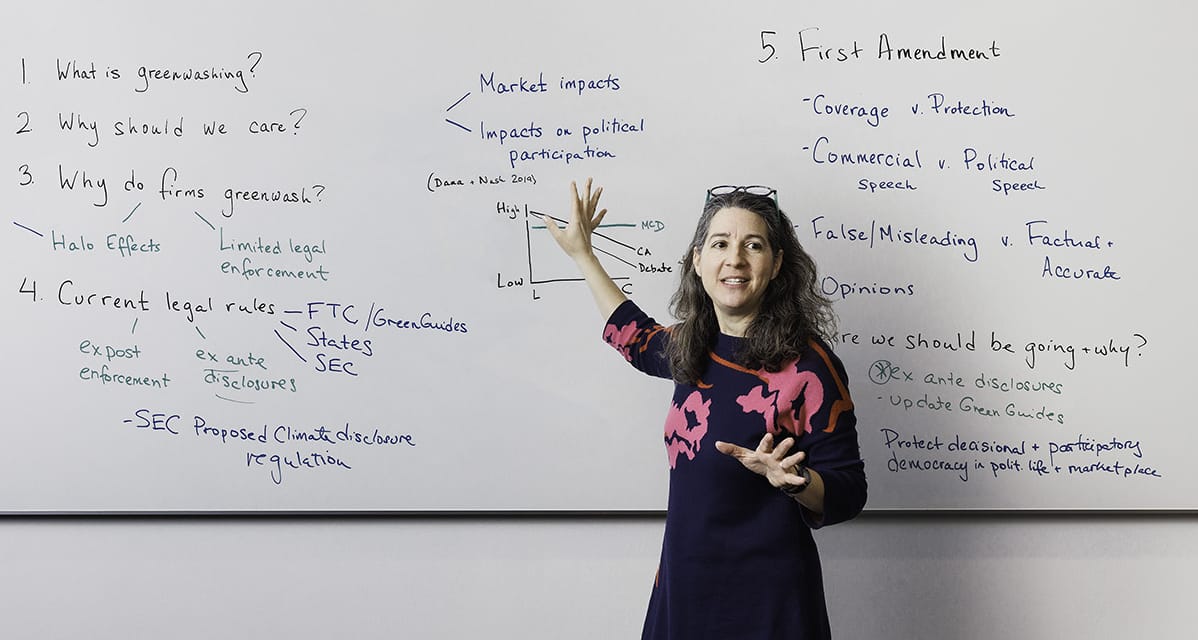Advertising green practices can have powerful effects on which companies people support and what products they buy. Perhaps surprisingly, it can also influence their positions on policy.
“When members of the public learn what private firms are doing with respect to the environment, it has an effect on their support for public regulation or laws,” says Sarah Light, Wharton associate professor of legal studies and business ethics. If people think most firms have adopted a green practice, they’re less likely to support regulation for that action; after all, companies already have it handled. If, however, only some firms have taken action, people are more likely to support regulation.
Given green advertising’s ability to influence people’s behavior, it makes sense that companies want the world to know about their efforts. On the other hand, it has also led some firms to use green language without merit. Light tackles the topic of “greenwashing”— when companies exaggerate or lie about their green qualities — and the regulatory implications in two courses: Business, Social Responsibility, and the Environment, for MBA students, and Environmental Management: Law and Policy, for MBAs and undergraduates. In those courses, students grapple with whether environmental speech should be held to higher standards than other types of speech — and if so, how.
As for her own thoughts, Light recently co-authored “Greenwashing and the First Amendment” with Amanda Shanor, assistant professor of legal studies and business ethics. Together, they argue that companies’ green speech should be subject to the First Amendment’s commercial speech doctrine, which asserts that misleading advertising can be prohibited. “Just as judges are dependent on witnesses for true information, consumers are dependent upon firms to share true information about their products,” says Light. “We don’t live in the world of ‘buyer beware’ anymore.”
Among the possible regulatory options, Light sees promise in requiring more up-front disclosures about environmental aspects of a company’s operations, in contrast to penalizing companies for actions they’ve already taken. “It’s really hard to go after people after the fact,” says Light. One promising development for disclosures is the Securities and Exchange Commission’s proposed rules for periodic climate-related disclosures from public companies.
“It’s very clear to me,” she adds, “that more disclosure could deter some of these considerations, would allow consumers to make good choices, and would potentially reduce distortion of politics in the marketplace.”
Published as “At the Whiteboard With Sarah Light” in the Spring/Summer 2023 issue of Wharton Magazine.

























